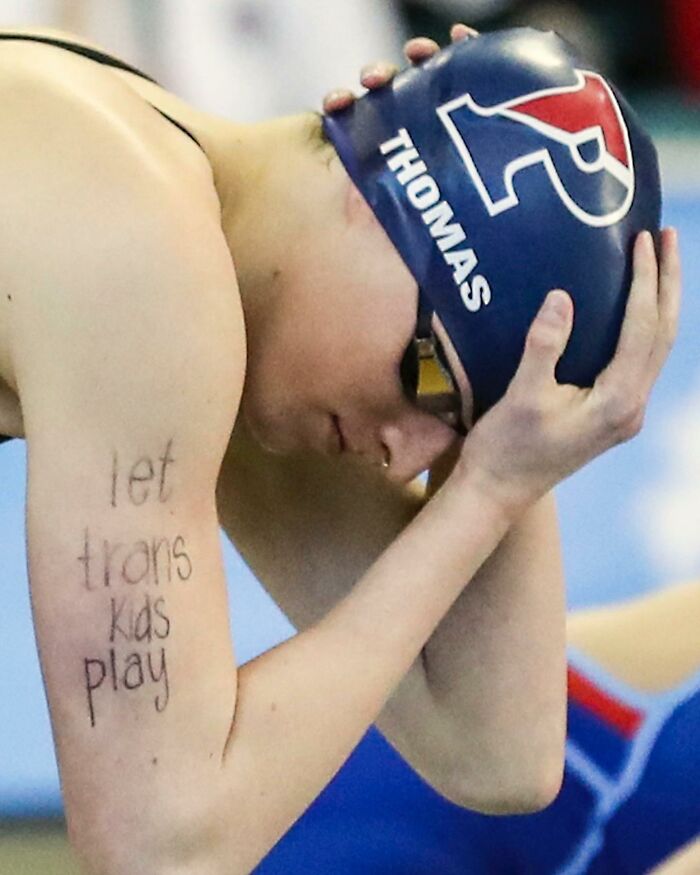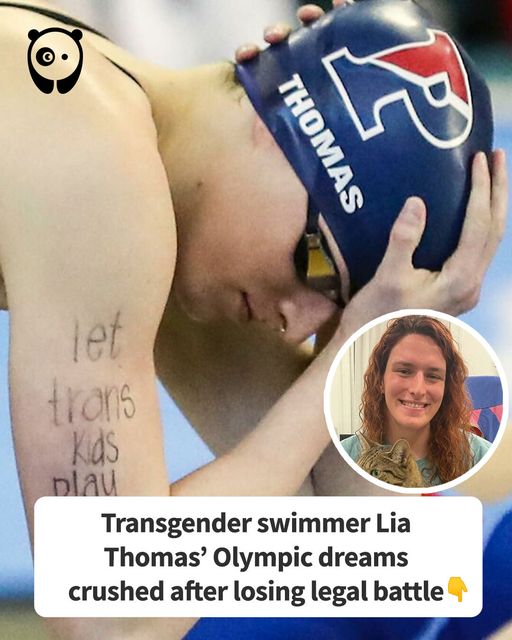Transgender swimmer Lia Thomas’ hopes of competing in the Olympics have been dashed after she lost a legal battle challenging an effective ban on trans women competing in the highest levels of women’s swimming.
The sportswoman was attempting to overturn the ban introduced in 2022 that prohibited anyone who has undergone “any part of male puberty” from competing in the female category of elite races.
However, on Wednesday, three judges on the Court of Arbitration for Sport (CAS) dismissed the 25-year-old swimmer’s request.
Transgender swimmer Lia Thomas lost a legal battle on Wednesday challenging a ban on trans women competing in the highest levels of women’s swimming

Image credits: Lia Thomas / Instagram
The athlete from Austin, Texas, made headlines a couple of years back when she was a member of the University of Pennsylvania women’s swimming team. She made history by becoming the first transgender athlete to win an NCAA Division I national championship, claiming victory in the 500-yard freestyle at the 2022 NCAA Women’s Swimming and Diving Championships.
Her victory sparked widespread debate and media coverage regarding transgender athletes’ inclusion in sports, and it was seen by some as a significant milestone for transgender rights and inclusion while others raised concerns about competitive equity in women’s sports.
The swimmer made history in 2022, becoming the first transgender woman to win an NCAA swimming championship
The same year she enjoyed success in women’s collegiate swimming, the World Aquatics (WA) banned transgender women who have been through male puberty from competing in women’s races.
Lia maintained that those rules were not only “invalid and unlawful” but also contrary to the Olympic charter and the World Aquatics constitution.
“Trans people don’t transition for athletics,” she said in an interview that aired on Good Morning America in 2022. “We transition to be happy and authentic and our true selves. Transitioning to get an advantage is not something that ever factors into our decisions.”
“It’s been a goal of mine to swim at Olympic trials for a very long time, and I would love to see that through,” she said in 2022

Image credits: Lia Thomas / Instagram
She revealed in the interview that she fell in love with swimming when she was four years old. The feeling of being disconnected from her body eventually came about as she grew older.
“I didn’t feel like I was a boy,” she said. “When I was a young kid, my mom always would describe me as a very happy kid,” she continued. “And then sort of in middle school and high school, as I, like, went through puberty, that shifted a little bit, with gender dysphoria from being trans, but I didn’t have, I didn’t yet know or have the language to describe that.”
After graduating in 2022, the sportswomen kept a firm eye on the Olympics and hoped to reach the 2024 U.S. Olympic Team Trials.
“I intend to keep swimming,” she told the outlet. “It’s been a goal of mine to swim at Olympic trials for a very long time, and I would love to see that through.”
However, Wednesday’s ruling diminishes any hope she had of competing in next month’s Paris Olympics.
World Aquatics called the Wednesday ruling a “major step forward in our efforts to protect women’s sport”
Following the ruling, WA said in a statement that it is “dedicated to fostering an environment that promotes fairness, respect, and equal opportunities for athletes of all genders and we reaffirm this pledge.”
“Our policies and practices are continuously evaluated to ensure they align with these core values, which led to the introduction of our open category,” the statement continued. “We remain committed to working collaboratively with all stakeholders to uphold the principles of inclusivity in aquatic sports and remain confident that our gender inclusion policy represents a fair approach.”
Athlete Ally, a nonprofit that advocates for the inclusion of LGBTQ+ members in sports, said Wednesday was a “sad day” due to the ruling.
“By dismissing Lia Thomas’ legal challenge against World Aquatics, the CAS has denied her fundamental right to access an effective remedy for acts that violate her human rights,” Hudson Taylor, the founder and executive director of Athlete Ally, was quoted saying in a statement. “This is a sad day for sports and for anyone who believes that trans athletes should have the opportunity for their experiences of discrimination to be heard and adjudicated like everyone else.”
In the end, while the ruling is a huge setback for Lia’s Olympic dreams, her bravery and perseverance in the face of adversity speaks volumes. Whether you agree with the CAS decision or not, one thing is clear: the conversation around transgender athletes in sports is far from over. There’s still a lot to discuss and, frankly, a lot to sort out.




